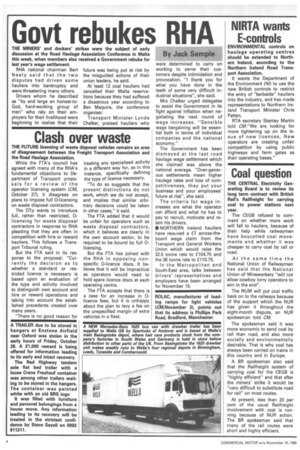Coal question
Page 6

If you've noticed an error in this article please click here to report it so we can fix it.
THE CENTRAL Electricity Generating Board is to review its long term contract with British Rail's Railfreight for carrying coal to power stations next year.
The CEGB refused to comment on whether more work will fall to hauliers, because of their help while railwaymen have boycotted coal movements and whether it was cheaper to carry coal by rail or road.
At the same time the National Union of Railwaymen has said that the National Union of Mineworkers "will not allow cowboy lorry operators to win in the end".
The NUM will put coal traffic back on to the railways because of the support which the NUR has given it throughout the eight-month dispute, an NUR spokesman told CM.
The spokesman said it was more economic to send coal by rail than road, and also more socially and environmentally desirable. That is why coal has always been carried on trains in this country and in Europe.
A BR spokesman also said that the Railfreight system of carrying coal for the CEGB is "highly efficient" and that after the miners' strike it would be "very difficult to substitute road for rail" on most routes.
At present, less than 20 per cent of the usual Railfreight involvement with coal is running because of NUR action. The BR spokesman said that many of the rail routes were short and highly efficient.




































































































